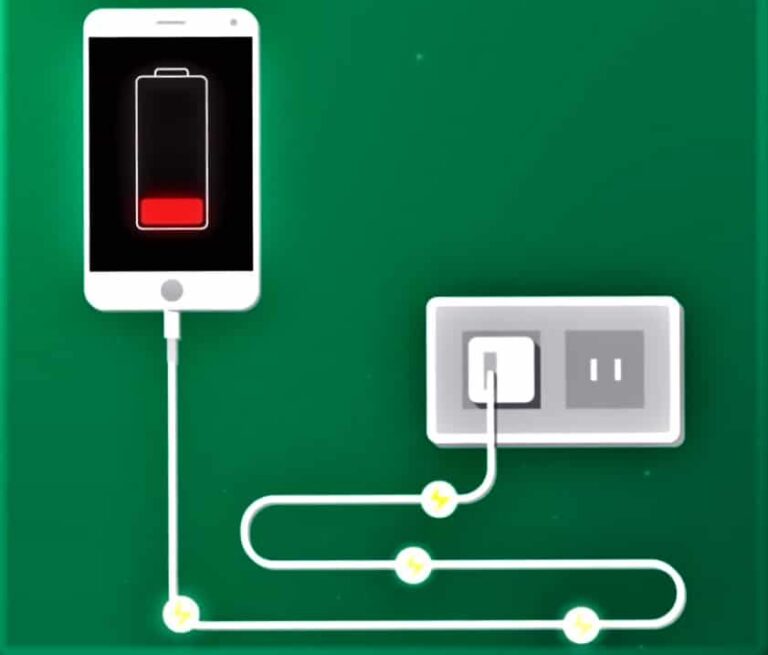
Hey there! We have been asked several times that is can I leave my camera battery charging overnight? or is it bad to leave your camera battery charging overnight? Many people today are using cameras and phones more often and wish to know about the effect of charging batteries overnight. After all the research we reached the following conclusion.
Table of Contents
Can I Leave My Camera Battery Charging Overnight?
In short No! You cannot leave your camera battery charging overnight. Camera batteries are affected badly by charging all more than the time required.
Even though the new cameras that come up with a feature to stop charging when the battery is 100% but it’s not the actual solution and still affect the battery somehow.
Is It Bad to Leave you Camera Battery Charging Overnight
No wonder your camera needs energy to power up, so its battery better be good. What can we do to make it last longer? Certainly not charging it all night long.
It’s a basic thing you want your camera to be charged at morning so it will last through the entire day away from the comfort of your home.
The edge-cutting camera-batteries which can charge fully in no time but there is no guarantee that you will remember charging your camera in the morning while you are in a sleepy daze.
Advice to leave your camera unplugged during the night may seem risky and counterintuitive. The worst thing is that the camera will charge down while you are sleeping and won’t see the dawn of a new day to wake you up like you are used to.
Leaving you camera on a charger all night is bad for it. It’s bad for the battery’s lifespan. Most modern devices use lithium batteries. Even though they are rechargeable in nature and that’s why they are highly vulnerable to constant interaction with high voltage of electricity.
Just imagine! If you are leaving your camera on a charger for the whole night, every night for a year, it will spend 3 months total in contact with raw electricity. This amount of stress on battery will inevitably diminish its capacity. You will be lucky if your camera lasts for more than the year in this case.
What Gear and Features can affect your Battery’s Lifespan?
Certain accessories can also affect your camera’s or battery’s life span and efficiency both positively and negatively. They are given below:
Automatic Stopping of Charging When Battery Reaches 100%
Though fortunately the manufacturers know about this issue and are trying their best to avoid this issue. For example, there are automatic switches on your camera that will stop the charging process the very moment your battery reaches 100%. It seems like the whole problem is solved but it’s not that easy.
You see when your camera’s battery status naturally goes down to 99%, then charging will all start over again. Your phone or camera goes from 99 to 100% charged and back many times during just one night and this too can somehow degrade the battery.
Camera Charger
Another thing you might take notice of is your charger. I know they seem to by tiny plastic gimmicks to convert energy from an outlet to a USB plug. But if you pay a close attention in a tech shop, you’ll notice that some of them cost a bit more than others.
Good high-quality chargers have special chips in them that prevent over charging. So, it’s advisable not to skimp on chargers – this way you won’t spend much money replacing your camera’s battery.
Charging Cables
And what about charging cables? They are also not just pieces of wire you know! Cheap cables are not charge a camera or phone really slowly and lac the feature of Quick-Charge which is available on most modern devices.
Though in some cases it’s worse than that. A poorly manufactured cable could cause a short and then your camera would be fried on a whim.
“My Order! Yes, I like fried camera, some fries with that and a diet cola please.
Will All These Features Save Your Battery?
Overall, it’s always advised to use good quality tech when it comes to something as expensive as cameras and smartphones these days. But even all these features combined, still can’t protect your battery, and allow you to charge it al long as you want.
These small charges and discharges between 100% and 99% will still occur all night and the problem are that it will heat up your camera’s battery. Heat is harmful for batteries. That’s why it is harmful for your phone if you leave it in a closed car in the middle of summers. It will be laggy and slow until you cool in down.
A battery lift on charge may produce heat but from inside of the camera’s or phone’s body which is arguably more destructive in the long term.
You can always ease with the detrimental process by taking your device out of your camera bag when you are charging it. Though it won’t completely solve the problem but will somehow reduce it.
There is also some news going around internet that I’ll have to disapprove as myths and nothing more. For Example! Like you might have heard about fully depleting the charge of your smartphone or camera and then charging it to the maximum capacity. For the present day this advice is almost completely obsolete.
This is fair for devices from the past decade because they were using different kind of batteries which are based on cadmium instead of lithium. These batteries have a little problem with memory.
 Okay Not that Memory! It was more like the amount of charge that was memorized by the battery. If it was charged to 30% regularly, it would be easy to get it to that amount but harder to charge beyond it.
Okay Not that Memory! It was more like the amount of charge that was memorized by the battery. If it was charged to 30% regularly, it would be easy to get it to that amount but harder to charge beyond it.
Have you ever gone lazy, so you won’t even eat? Are you kidding me? Well that’s what happening to that kind of batteries. This effect was also called lazy battery effect – clever name, right? I will explain later.
Any modern lithium battery won’t get lazy like a cadmium battery, so you don’t have to worry about that. As in this case with the notion that the first charge should be longer one – this is about cadmium too and based on the same problem as I mentioned above.
How to keep the battery healthy and away from degrading?
There are possibilities of batteries that won’t be affected by overnight charging in future but for now, the best course of action is to use good quality charging equipment, keep your smartphone out of heat and most importantly keep the charge level between 30% and 90%.
Don’t starve it and don’t overcharge it and your camera or smartphone will serve you for years until a new model is out which you are going to have when comes out.
If the Video Doesn’t Begin, Click Here
Advancement in Batteries in the Coming Future
For a long time, there was a little to no breakthroughs in the ways we power our devices. At least no progress. The power of batteries grew to accommodate out devices which needed more and more power, but the sizes have decreased leaving less space to hold the battery. So, advances in engineering in new ways to manufacture batteries haven’t stopped.
Super Quick Charge Batteries
Scientists and engineers promise that soon we will have another type of lithium-based batteries that would be charged in a matter of minutes and may last longer than a day.
And that’s not the most insane idea on the list. Can you predict what it be? Tell me about the battery of your dreams in comments. But now let’s move on.
Wireless Charging
As you all know that wireless charging is a thing now and now it seems like scientists are already ready to push it a step further. One of the new idea which is in progress is to make battery chargers that can charge a battery from a Wi-Fi signals. So that one thing that draws most of the charge of our phone would charge them in future.
Sound Charging
And how about charging a phone with a sound? Using piezoelectric principles, tiny nanogenerators will be able to transform the surrounding sound into power. Even your own voice would be a source of energy and you can literally chare your phone while in a call. Guess that would be a great news for service providers.
Sodium Batteries instead of Lithium Batteries
Scientists of Japan are in the middle of a decade-long study that will allow replacing lithium ion batteries with sodium. The main difference between the two elements is that lithium is quite rare and expensive while sodium is literally everywhere. It is one of the most wide-spread elements on Earth. Batteries won’t be only more efficient but also cheaper.
Sand/Silicon Batteries
Another idea is to use literal sand in batteries. Not quite literal though as this battery will use silicon – the main component the sand, thinned down into nano-silicon structures, this element will be much more efficient in a battery than the graphite that’s used currently.
Gold Batteries
And now to more expensive stuff: How about gold batteries? Actually, it’s nanotubes made of gold in batteries where energy transfers through the gel will be so sturdy that the battery won’t ever degrade at all. With the battery of this kind you will be able to charge your phone for as long as you want no matter, you leave it charging for 10 hrs. or more.
Conclusion
Now we conclude our post by deciding that Yes! camera batteries are affected by charging over night and can be very harmful in some cases. So, you batter keep the phone unplugged while at night and charge it before or after your sleep.
Hey if you learned something new today then comment below and share our article with your friends.
Also Visit: How to Clean Camera Battery Terminals

